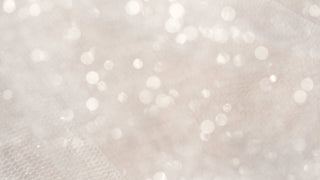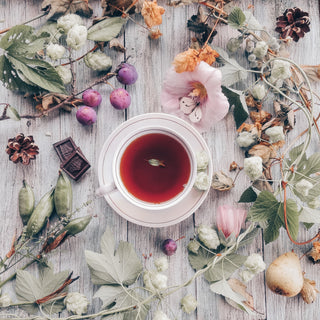Walking down the tea aisle in a grocery store can be a particularly overwhelming experience, full of colorful boxes and flowery names. If you’ve ever looked at any of the labels, you may have noticed that in addition to green tea, black tea, oolong tea, and white tea, most stores also carry herbal teas. But what exactly is herbal tea? What distinguishes it from any other kind of tea? And why bother drinking it?
The Basics
Let’s just start with the truth. Herbal tea is NOT, strictly speaking, a true tea. Yup, you heard us. True teas (greens, blacks, oblongs, whites, and puerhs) are produced from the leaves of the Camellia sinensis plant. These harvested leaves are then processed into the tea leaves we all know and love by means of steaming, rolling, and even sometimes pan frying, so that when they are added to water, they impart unique, robust flavors and restorative health benefits.
While herbal teas—also known as tisanes—are processed, prepared, and presented in a nearly identical manner to traditional teas, the potential ingredients for herbal teas range far beyond the leaves of a single plant. Instead, herbal teas can include flavors from any roots, leaves, flowers, spices, and barks that don’t belong to the Camellia sinensis family. So in some ways, the gambit of flavors in herbal teas is far wider because of the sheer number of possible ingredients available.
Why Drink Herbal Tea?
Aside from a wide spectrum of flavors, herbal teas also offer a broad range of natural health benefits. Because of herbal teas’ plant-based origins, herbal tea drinkers gain antioxidants and immunity boosts straight from the sources. They breadth of ingredients available in herbal teas creates an equally wide span of potential health benefits. And the best part is that herbal tea is simple both to prepare and digest. No need to work obscure ingredients like holy basil and
lemon balm into your morning smoothie blend or your weekly meal prep. All herbal tea requires is a little time for steeping, and then boom! You can drink up a whole load of nutrients in a matter of minutes!
Generally speaking, herbal teas are caffeine-free. So if you need something warm to drink, but don’t want or need a caffeine buzz, herbal tea might just be the answer to your prayers! Before you drink, though, make sure your herbal tea is, indeed, caffeine-free. Most are, but some herbal teas (such as Yerba mate) are caffeinated. We definitely don’t want you accidentally inflicting yourself with a nasty case of the jitters!
So there we have it: a back-to-basics primer on herbal tea! When it comes to ingredients, flavors, and benefits, the possibiliteas (see what we did there?) are seemingly endless! Stay tuned for more information on how to identify great quality tea, the various natural advantages of being a regular herbal tea drinker, and much more!
Until then, happy sipping!


